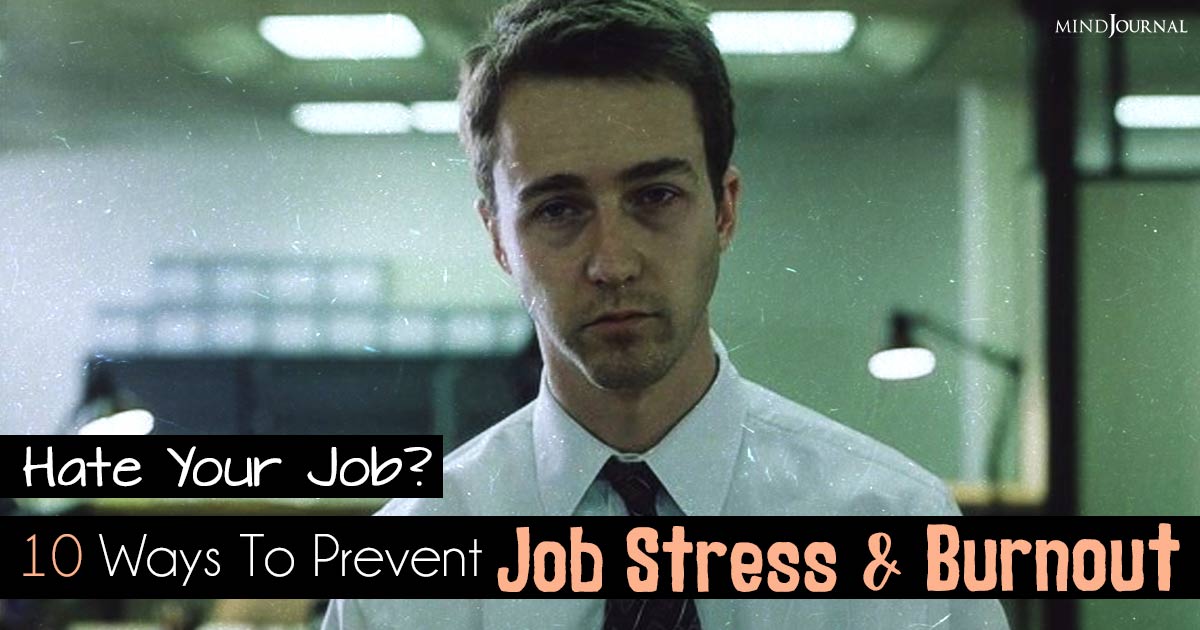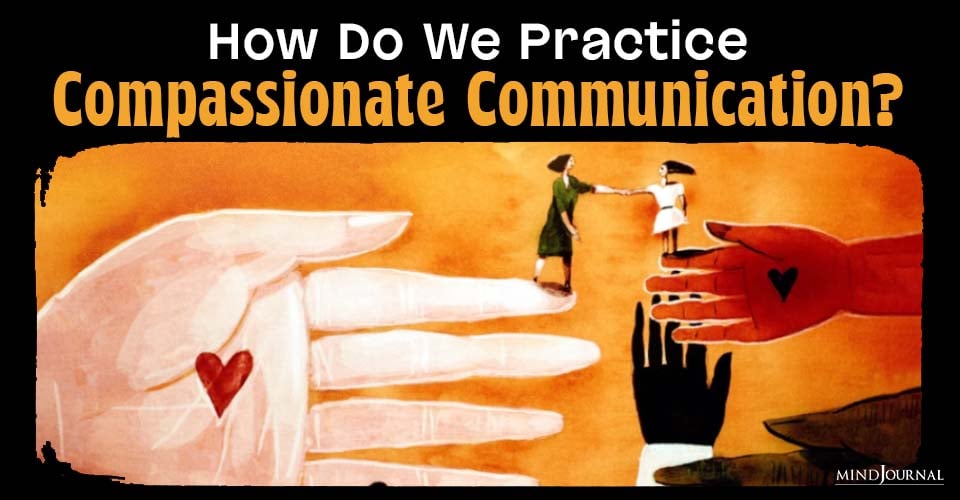Do you hate your job? Do you feel trapped and suffocated all day at work? Do you feel mentally and emotionally exhausted once you clock out? If so, then here’s exactly what you need – how to cope in a job you hate.
Being the responsible adult that you are, you know you still need to pay the bills, regardless of how much you may hate your job. So immediately leaving a terrible job that you hate might not be the most practical option for most of us. So you tell yourself to pull your socks up and try harder. But the more you force yourself, the worse you feel.
Your mental and emotional well-being has gone down the drain. You have no idea where your career is going. You sulk all day at work. You zone out at times. You distract yourself with social media. You have the resignation letter saved as a draft. But most of all, you just want to escape this trap that feels like a prison sentence.
While I do hope you find a job where you are appreciated, respected, and recognized real soon, there are certain things you can do to better cope with a job that you absolutely detest.
So let’s explore the psychology of job dissatisfaction and how to cope in a job you hate.
It’s Not Job Stress, It’s Pure Burnout
Your alarm buzzes and you wake up reluctantly one more time. You sigh as the realization sets in that you need to do the thing you hate once more. You jump into the rat race again as you run to reach your office on time. God forbid if you are a minute late, HR will eat your brain with a long lecture followed by another email.
As you settle down in your workstation and finally manage to breathe, notifications start to pop up about all the pending tasks and current ones that you need to submit by today. But that wasn’t enough now, was it? Now you have to deal with your coworkers – some toxic, some idiots, and some who are actually in the same boat as you are.
Related: My Job Is Too Stressful: Are You Suffering From Shit Job Stress Disorder (SJSD)?
The frustration sets in real quick as you start completing one task after another knowing very well that your efforts will not be appreciated today either. You take a toilet break and finally manage to get some privacy. You feel like crashing down. Your mind has given up. Your emotions are completely out of place. Your body just wants rest. Your soul whispers “RUN!”.

You gather yourself and get back to work. The HR gives you a stink eye cause you wasted the company’s time in the washroom. Your heart sinks as frustration and sadness set in in equal measure. You feel angry, demotivated, stressed, anxious, depressed, unfulfilled and dissatisfied. As all these emotions wreak havoc on your being, you ask yourself –
What the F am I even doing?
Is this all there is to my life?
Dancing like a monkey on someone else’s tune?
Yes, I need the money and for that I am providing my skillful services. But do I need to be a slave for that?
Do I need to be degraded, abused and forced to do things?
Do I even need this stupid job?
As you feel powerless, hopeless, and helpless, an intense hatred arises… for your job, for your boss, and even for some of your toxic coworkers. And this hatred doesn’t come from job stress. It comes from pure, unfiltered burnout and extreme exhaustion.
But the truth is you don’t need hatred in you. Yes, all of us have financial obligations and sometimes leaving your job is simply not possible. But you don’t have to give yourself in and allow hatred to take over. Hating your job can lead to a significant decline in your mental and emotional health, affecting various aspects of your life.
The best thing you can do is learn how to cope in a job you hate. However, before we can do that, we need to uncover certain aspects that will give us a better perspective on this complicated situation and enable us to find better solutions.
So let’s dive in.
Psychological Effects of Job Stress
Job stress can have a profound impact on our mental and emotional well-being. The constant pressure, demands, and negative environment can lead to a range of psychological effects.
These may include increased anxiety, depression, irritability, and a decreased sense of self-worth. These are just some of the psychological effects of job stress.
The stress from a job you hate can seep into other areas of your life, affecting your relationships, overall happiness, and even your physical health.
Why Do You Hate Your Job? 5 Reasons for Job Dissatisfaction
Ever wondered why you hate your job? Yes, your boss and the work environment are toxic. But that’s the reality everywhere. They are running a business. They will do anything needed to boost their profits. There’s no point in blaming them.
The important thing is to bring the focus back on yourself and understand what YOU can do to change the situation. And for that, you have to understand the reasons for job dissatisfaction.
Here are some common factors that contribute to hating your job-
1. Lack of growth opportunities
When employees feel like there’s no room for advancement or skill development in their current role, they may become dissatisfied with their jobs.
2. Poor work-life balance
A job that demands too much time or energy can lead to burnout and dissatisfaction, especially if it interferes with personal life or leisure activities.
Related: 3 Ways To Like A Job You Loathe
3. Toxic work environment
Negative attitudes, conflicts with coworkers or management, and a lack of support can create a toxic atmosphere that makes employees dread coming to work.

4. Unfulfilling tasks
Monotonous or repetitive tasks that don’t align with an employee’s skills or interests can leave them feeling bored and unfulfilled.
5. Feeling undervalued and unappreciated
Employees who don’t feel recognized or appreciated for their contributions may lose motivation and satisfaction in their jobs.
Identifying the specific aspects of your job that make you unhappy can help you address those issues directly.
Now that you have some understanding about the reasons for job dissatisfaction, let’s explore the symptoms of burnout, so that you can learn how to cope in a job you hate.
7 Symptoms of Burnout That Show You Hate Your Job
When you’re stuck in a job you hate for an extended period, you will experience severe burnout. And it is due to this constant feeling of being burned out, you start hating your job.
Burnout is a state of chronic physical and emotional exhaustion caused by prolonged stress. But how can you know if you are burned out? Here are some of the most common symptoms of burnout –
1. Constant fatigue
Burnout often manifests as persistent feelings of exhaustion, both physical and emotional, that don’t improve with rest. This fatigue can make it challenging to perform tasks effectively and can impact overall well-being.
2. Reduced productivity
Burnout can lead to a significant decline in productivity as individuals struggle to focus, complete tasks, or meet deadlines. This decline may stem from a lack of motivation, difficulty concentrating, or feelings of overwhelm.
3. Cynicism
Burnout can foster a negative outlook on work and life, resulting in increased cynicism or skepticism towards coworkers, tasks, or the organization as a whole. This cynicism may manifest as sarcasm, pessimism, or a general sense of distrust.
4. Detachment
Individuals experiencing burnout may emotionally detach from their work, colleagues, or personal relationships as a coping mechanism. They may withdraw socially, avoid interactions, or feel emotionally numb, leading to feelings of isolation and disconnection.
Related: How To Deal With A Narcissistic Boss: 14 Strategies That Always Work

5. Sense of hopelessness
Burnout can evoke a pervasive sense of hopelessness or despair about one’s current situation and future prospects. This feeling of helplessness can contribute to a cycle of negative thoughts and emotions, further exacerbating burnout symptoms.
6. Physical symptoms
In addition to emotional and cognitive signs, burnout can also manifest in physical symptoms such as headaches, muscle tension, gastrointestinal issues, and sleep disturbances. Well, now you know what happens to your body when you hate your job.
7. Decreased satisfaction
Burnout often leads to a significant decrease in overall job satisfaction and enjoyment. Tasks that were once fulfilling may now feel burdensome, contributing to a cycle of dissatisfaction and disengagement.
It’s crucial to recognize these signs early on to prevent further deterioration of your mental and physical well-being.
What Happens to Your Body When You Hate Your Job
Hating your job can take a toll on your physical health as well. Stress and dissatisfaction can manifest in various ways, such as headaches, muscle tension, digestive issues, and a weakened immune system. This is what happens to your body when you hate your job.
Additionally, the constant negative emotions associated with a job you hate can lead to chronic conditions like high blood pressure, heart disease, and mental health disorders. Taking care of your physical well-being is essential when coping with a job you dislike.
How to Cope in a Job You Hate: 10 Tips To Follow
Now that we have explored the psychological effects of job stress, reasons for job dissatisfaction, symptoms of burnout, and what happens to your body when you hate your job, let’s discuss some practical strategies to cope with a job you hate:
1. Identify the source of dissatisfaction
Reflect on the specific aspects of your job that make you unhappy. Is it the tasks, the people, or the work environment? Pinpointing the root causes can help you develop a plan to address them.
2. Seek support
Reach out to trusted friends, family, or colleagues who can provide a listening ear and offer advice or perspective. Connecting with others who have faced similar challenges can be particularly beneficial.
3. Prioritize self-care
Make self-care a priority in your daily routine. Engage in activities that bring you joy and help you relax, such as exercise, meditation, reading, or pursuing hobbies. Taking care of yourself outside of work can alleviate some of the stress and negative emotions. This is how to cope in a job you hate.
4. Set boundaries
Establish clear boundaries between your work and personal life. Avoid checking work emails or engaging in work-related discussions during your time off. Creating a healthy work-life balance can provide you with much-needed respite from the job you dislike.
5. Explore opportunities for growth
Look for ways to expand your skills and knowledge within or outside your current job. This could involve taking online courses, attending workshops, or seeking mentorship. By investing in your personal and professional development, you may open doors to new opportunities.
Related: How To Effectively Resolve Conflicts In The Workplace
6. Consider alternative career paths
If the job you hate is truly unbearable and there is no scope for improvement, it might be worth exploring other career options. Assess your skills, interests, and values, and research industries or roles that align with them. Career transitions can be challenging but immensely rewarding.

7. Find Meaning Outside of Work
When your job is unsatisfying, it’s crucial to find fulfillment and purpose in other areas of your life. Engage in hobbies, volunteer work, or pursue personal projects that bring you joy and a sense of accomplishment.
By focusing on activities that align with your values and interests, you can counterbalance the negativity from your job.
8. Focus on What You Can Control
While you may not have control over the entire work environment or your specific tasks, there are aspects within your control. Identify what you can influence and direct your energy towards making improvements in those areas.
Taking proactive steps, even small ones, can give you a sense of empowerment. This is one of the best tips on how to cope in a job you hate.
9. Take Breaks and Vacations
Give yourself regular breaks and take advantage of your vacation time. Use these periods to recharge and disconnect from work-related stress.
Engage in activities that help you relax and rejuvenate, whether it’s spending time in nature, traveling, or simply enjoying leisurely activities with loved ones.
10. Plan for the Future
While coping with a job you hate, it’s important to have a vision for the future. Set goals and create a plan to transition into a more fulfilling career or explore new opportunities. Having a long-term perspective can provide hope and motivation to persevere through difficult times.
Remember, coping with a job you hate is a personal journey, and not all strategies may work for everyone. Experiment with different approaches, be patient with yourself, and know that you have the power to make positive changes in your career and overall well-being.
Takeaway

Coping with a job you hate can be mentally and emotionally draining, but it’s not an insurmountable challenge. By understanding the psychological effects of job stress, identifying the reasons for job dissatisfaction, recognizing the symptoms of burnout, and learning how to cope in a job you hate, you can navigate this difficult situation with resilience.
Remember, you have the power to make positive changes in your life, whether it’s finding ways to improve your current job or pursuing a new path altogether. Prioritize your well-being, seek support, and never underestimate the potential for personal growth and fulfillment.
Related: How To Get Your Dream Job
Frequently Asked Questions (FAQs):
What should you do if you hate your job?
If you hate your job, consider exploring other career options, addressing concerns with management, or seeking support from friends and family.
How do you cope with a job you hate but can’t quit?
Coping strategies for a job you hate but can’t quit may include setting boundaries, seeking professional help, and finding ways to cultivate joy outside of work.
Is it worth quitting your job if you hate it?
Yes, but it depends on certain factors. Quitting your job, if you hate it, depends on various factors, including financial stability, career goals, having a plan for the future and overall well-being.










Leave a Reply